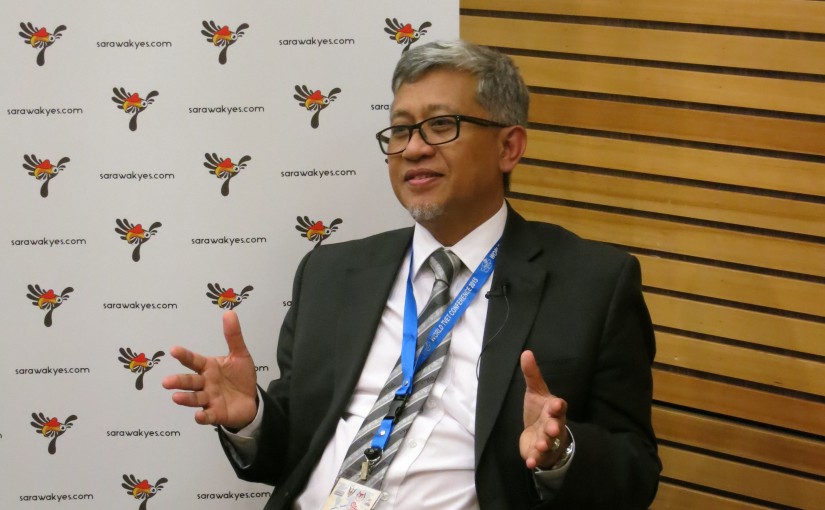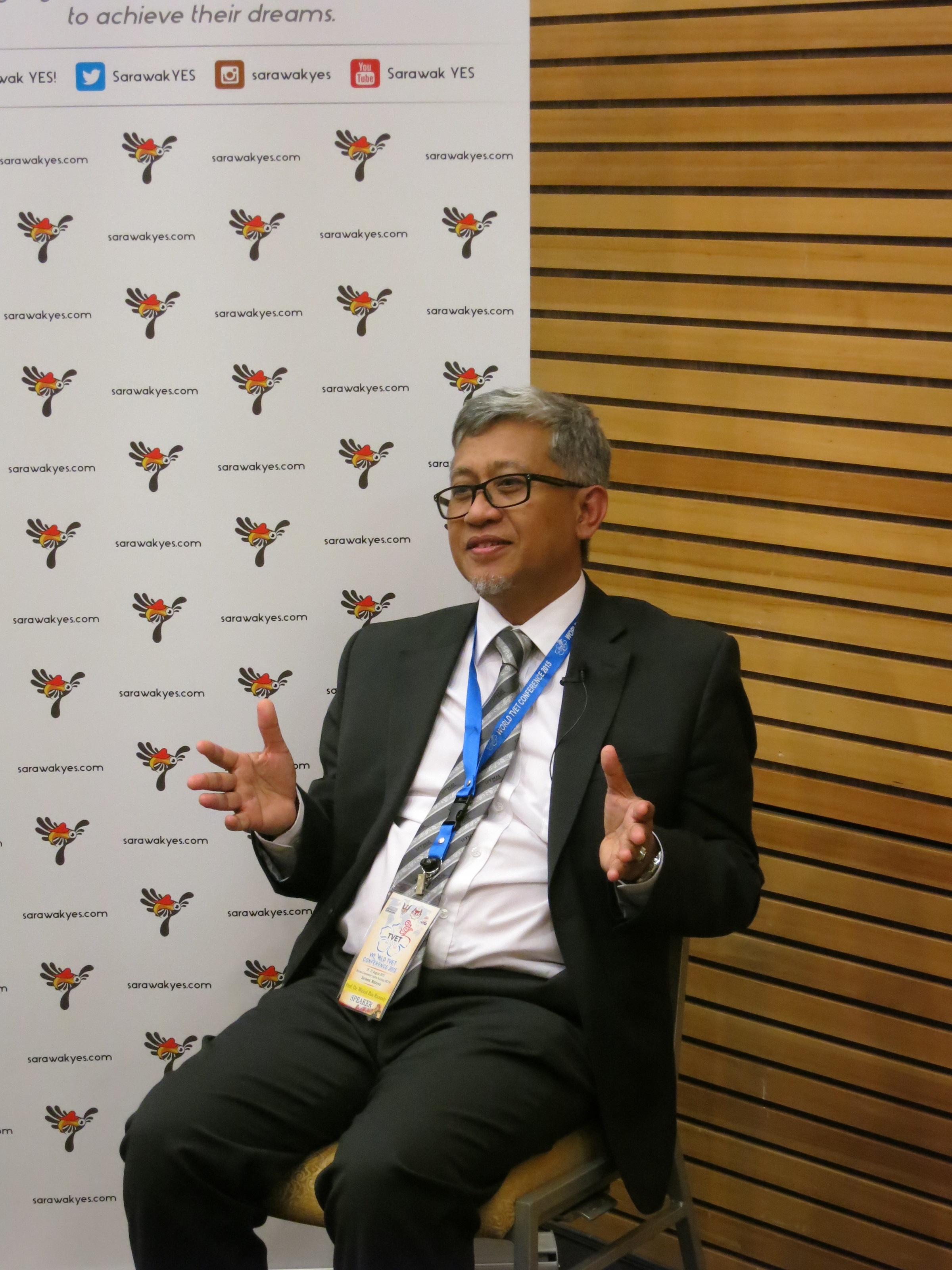Prof. Dr. Wahid Razzaly, Deputy Vice-Chancellor, Universiti Tun Hussein Onn Malaysia sat down with SarawakYES! at the recent World TVET Conference 2015 to share his thoughts on TVET, innovation, and what young Sarawakians should consider before entering this field of work.
Q: Can you tell us a little bit more about innovation in TVET?
A: Basically, TVET is a field area that comprises learning, work, and also what we call technology. Innovation involves all these 3 elements. So basically what I was talking about just now (in the conference) was innovation in the learning part only. So basically, in a TVET system we’ve got what we call input process and output, and the output must really have an impact on the industry. So the innovation processes must loop through and you can have this in any of these sectors. For example, if you talk about what is the innovation in TVET with respect to delivery, that’s about virtual learning, that’s about a blended learning and that’s about how you use social media to address the issue of TVET. TVET needs to innovate with the industries, not on their own.
Q: What are some examples of innovation being applied in the field of TVET in Malaysia or Sarawak?
A: At UTHOM, we design a program that can extract the importance, or the relevance, of industries and their standards. And thereon we develop a program to produce TVET teachers, or a coach for these industries. In many respects there are many innovations going on in TVET. As an example, one of my PhD students is doing research in Samling, which is a very big industry employing thousands of workers. And the innovation that he was trying to suggest, or to be innovated, was to have something that we call dual training system, in Samling. Which means the Samling as a business entity will have learning within the company, and as it goes now it will be able to sustain into the future. Because in many industries … there is a curve, if you don’t do research, if you don’t bother about what’s going to happen next, then the company will collapse. So basically my student is studying about how learning could be addressed with respect to workers, either as a technician or as the supervisor. If Sawarak is to have many of these people, I think the dynamism of Samling would be great, and the Sarawak corridor would move faster.
Q: When we talk about TVET, there is a sense that safety might be an issue, resulting in some dropping the idea of pursuing it as a career. How do you think this has changed today?
A: This is something that was perhaps true 10 years ago. But we have what we call the Department of Health and Safety, we have got Acts, we have got the Environmental Act, and we have many acts to ensure that workers are protected, either health wise, environment wise or safety wise. I’ll give you an example – in the petrochemical industries, I have been through an oil rig and it looks a very dangerous area to work on, that’s TVET. But you see, we have got processes and procedures, we have got standard operating procedures, we’ve got well-trained TVET workers, and therefore minor incidents will not happen, they will not happen in the present day provided that the industries invest in safety and the industries understand what it takes to keep its workers happy and healthy.
Q: Tell us what are the things a person needs to consider before venturing into this field, into TVET?
A: TVET is getting much attention from the government as well as from elsewhere. And with Malaysia becoming the chairman of ASEAN and also between the Ministry of Human Resources, and also the Ministry of Education and the Ministry of Higher Education, they’re putting in a lot of money; I think about 2 billion, spent on TVET.
But the thing is how to make the right choice; I think that has got to be left to the parent. I would blame the parents if their kids refuse to go for TVET courses or TVET programs. Basically, we have got to educate our kids – blue collar is normal, better than white collar. I’ll give you an example – my son is earning more than what I’m earning just because he is involved in TVET industries, that’s a fact of life. And therefore any parents, I would suggest that they need to see things from a proper perspective. One thing, the kids they have got 12 intelligences, do not only consider one intelligence. No, that is wrong and it will be a wrong decision to suggest to your kids that ‘look you need to go to university because you have so many A’s’. No, remember that your kids have many more intelligences.
So parents should know what are the other inclinations or traits within their children. And this is the thing that I would like to suggest, that TVET institutions should tell the parents, ‘please know your children, what are their traits and what are they good at’, not just going for one line of thought which is academic, universities.




